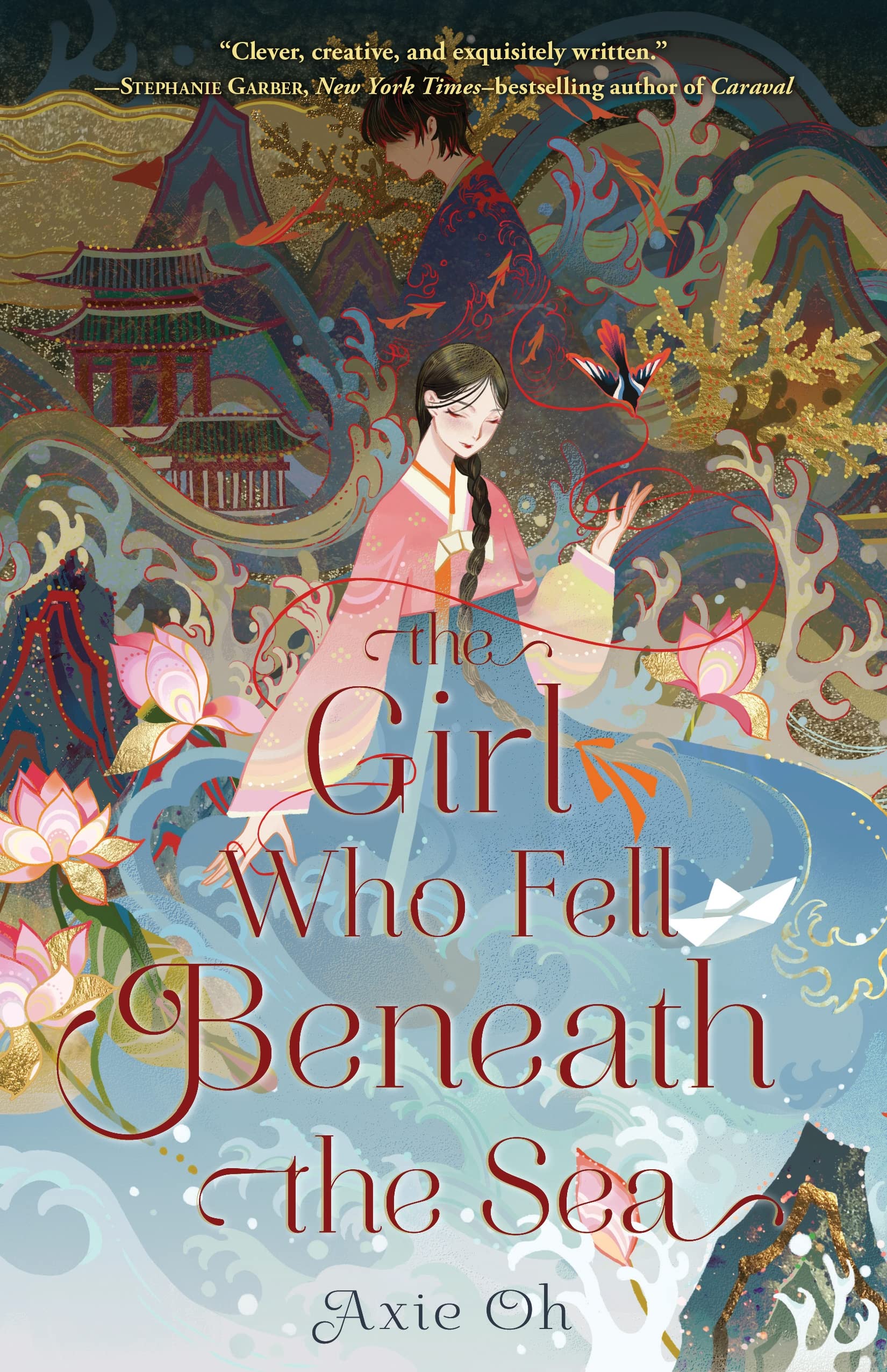⋆⋆⋆
Content Warning: death (including that of children), violence, murder, misogyny.
Mina cannot remember a time where there were no storms. In her seaside village, the people have been struggling for as long as she can remember, begging the Sea God to have mercy upon them -- and sacrificing their daughters every year in the hopes that finally, his true bride will break whatever curse has befallen them. The bride is intended to be the beautiful Shim Cheong, but when Mina's brother, Joon, follows her out to sea, Mina makes a rash attempt to save them all, and becomes the Sea God's Bride herself. Swept into the mythical realm of spirits, Mina learns that all is not as it seems, and that it is the Sea God himself that is beneath a curse. Determined to break it, and in the process save her family and village, Mina decides to do whatever she must to give them all a chance at a better future, no matter what happens in the process.
As one of my most highly anticipated reads of 2022 (which even made it onto my list), I had extremely high hopes for The Girl Who Fell Beneath the Sea. I've never read anything else by Oh, so I was going in a bit blind, unsure of whether or not her writing style would click with me, but fully expecting to love the story for its fairytale-esque feeling and its exploration of Korean culture and traditional beliefs. The problem perhaps lies mostly with me, or to be more accurate, my feelings on the young adult genre as a whole. As soon as I read the first chapter, I had a sinking feeling that this wasn't going to be quite the five or four star read I was imagining.
Currently, the style that dominates YA books is first-person, present-tense, usually combined with long passages of navel-gazing. Another problem I have with it is the feeling of constantly being told something, rather than shown it actually happening. While some people absolutely love it, I find it distracting, and admittedly, rather off-putting. Oh also makes a point of telling us time and time again that Mina, our heroine, is not special in any way, not beautiful or talented or particularly bright. This trend has the detrimental side effect of making the characters seem as if they're lamenting their so-called issues and lack of self-confidence, but instead of engendering relatability, it instead leaves me wanting to roll my eyes. After all, Mina is special, as we're made aware of the entire time: she's brave, goodhearted, determined to make a difference, and aside from occasionally rash or impulsive, pretty much without flaws.
Those aspects impact my ability to fully immerse myself in or enjoy a story. Others like the style, have no problems with these current trends, and will undoubtedly wholeheartedly love this book -- but sadly, I'm not that reader. However, with that being said, I do want to focus on some of the positive elements of this book!
Firstly, in spite of the fact that Oh's writing isn't exactly my cup of tea, I did find her descriptions beautiful, and the way she expertly weaves in the cultural information we need to know without it being obtrusive was wonderfully done! Many reviewers have compared this to Ghibli's Spirited Away (which happens to be one of my favorite films of all time), and I definitely see why -- the first portion of this book in particular is reminiscent of the spirit realm that Chihiro passes into, with its restaurants, carts and bathhouses, and its strangely uninhabited city. There are some really excellent scenes where we get to enjoy both the strangeness and the beauty of this undersea world, and the atmosphere is beautifully rendered.
As for the characters, I liked Mina, but I can't say I ever fully felt convinced or moved by her motivations or emotions. It's strange, because this book is touted as a 'feminist' story, but I can't really discern what about it is supposed to give us this feeling -- simply because Mina tries to make her own choices, and forge her own destiny? There wasn't really a particularly strong focus on sisterhood, either, although there is a touching relationship between Shim Cheong and Mina, and most of the other characters in this book are men. Speaking of which, I must say that I truly enjoyed Kirin and Namgi's characters, and I did love the sort of grudging friendship they build up with Mina. The few other women and girls that populate this book are little more than window-dressing.
There were some very touching moments, and in those moments, I found myself wishing that I could truly adore this book like so many others do. The overall juvenile feeling of the writing, story and character-voice also left me feeling a bit cold; Mina is supposed to be sixteen, but instead, she often seems like she's closer to twelve or thirteen. I did find the ending sweet, and I actually enjoyed the romance at the heart of the book, something that took me by surprise, as I'm usually not a fan of romantic plotlines in YA books.
At the end of the day, I wish I could've loved this book as much as I hoped to, but sadly, it simply wasn't for me. Don't let this discourage you, however -- I think many readers will love this, and while it isn't mind-blowing, it's a solidly mapped out story that is extremely easy to read.


No comments:
Post a Comment